Hello Everyone! Now that I have spent six months in Chile, I am in a pretty good position to write my first blog post for the university on the Santander Scholarship. I have another blog alongside this one which can be found here : https://yearabroadinchile.wordpress.com and goes into much more detail some of the trips I’ve done to Argentina, Peru and around Chile. What follows is a general post about Chilean culture briefly about the things that have stuck out most to me.
Firstly, I’ll start with the Chilean language. A lot of words are said in their diminutive term especially if the thing in question is big ! For example, Aguita (water), Chiquill@s (guys/girls), gatito (cat), paltita (avocado), tesito (tea) and so on. I suppose it’s just a nicer more friendly way to call things often used to show affection and care to loved ones.
This leads me onto Chilean Spanish. It is almost nearly a completely different language, yes it’s still ‘Spanish’ but the pronunciation, accent, and vocabulary is completely different. Even Spaniards from Europe have trouble understanding them! For example, pronounciating the ‘tu’ form of verbs have the ‘s’ at the end of their verbs aspirated estai (be), queri (want), llamai (call) etc. and words that end in –ado, the d is removed in speaking such as seen in words like cansado (tired) becomes cansao or enojado (angry) becomes enojao and medio (half) is simply said ‘meo’. Some of my classmates also in Chile have given a few words that only exist in Chile, here are a few more: tuto (sleepy), cuatico (weird/impressive), pila (batteries, no it’s not baterias here!), curao (drunk), filete, (something good like filet steak) peludo (difficult), brigido (Bad/big problem), a la chucha (something far away), guata (stomach), fome (boring), flaite (chav), se la patio (Did something good/bad). A lot of words have several meanings depending on context, which makes it all the more confusing! Others have slightly more crude meanings so if you are curious you can look it up here http://www.mainframe.cl/diccionario/diccionario.php?letra=A
Also the accent is quite particular and there are words of phrases that are said with a particular intonation such as weon can be used as “bro” or to call someone a “jerk” or “arsehole”. In fact the different variations of weon/huevon/aweonao all have different meanings that vary on context and again pronunciation. I don’t think I will ever be in comfortable position where I can say and use them in the correct way and context, luckily neither do most Chileans. Joint with weon there is also wea, another word that has a variety of meanings and is used relentlessly by Chileans probably because it simply means “thing”.
Other Chilean phrases that need to be pronounced properly are:
Que weeeeeno (gooood!)
Que laaaaata (How boring!)
Puuuucha (damn!)
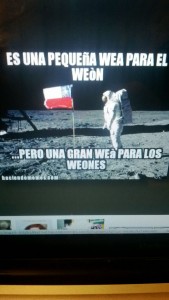
Probably the thing (wea) that has struck me most of being different in Chile compared to the UK is how you greet someone. In Chile, if you’re a guy and you’re saying hello to another guy it is always a firm, sometimes hand crushing, handshake, even if you recently saw him earlier that morning. If you’re a guy greeting or saludando a girl its one kiss on the cheek no matter if it’s a friend or someone you’re meeting for the first time like an interview or a house viewing. Chileans sometimes get offended if you do not greet them. which is far enough I can understand how it can be seen as rude. One of my Chilean housemates was offended with an European housemate for not greeting him the proper way, I don’t think he did it on purpose, just saying hello was not enough! I think he was just a little shy but this does not help with the view here that Europeans are generally seen as colder and more distant people, which to be honest is not wrong compared to how kind and slightly touchy people can be here! I can only think that on my return to England, there hopefully won’t be any awkward moments where, perhaps forgetting I am no longer in Chile I accidently lean in to kiss a woman on the cheek! Chileans in fact kiss everyone and it’s not rare to see heterosexual men kissing on the cheek to greet one another. However something I am not confident enough to do at this stage as it’s normally with close friends! This is related to what Chileans deem as personal space. That unwritten rule of arms length distance simply does not exist, and certainly do not expect any reasonable space on public transport! Chileans kiss everybody and conversations can be held at kissing distance. This brings me onto to PDA (Personal Displays of Affection) that feels to have a constant presence in all parts of Santiago. Couples can be, how can I put this, pretty full on in expressing their love in public to say the least. The phrase “get a room” entered in my mind all to often when I first arrived to Santiago.
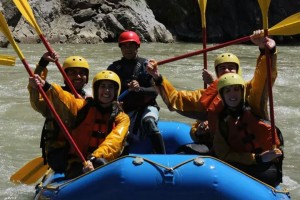
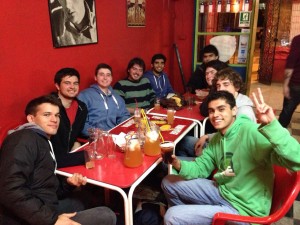
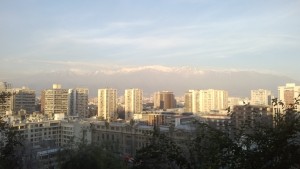
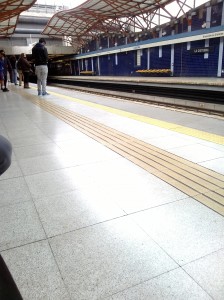
Also Chileans are pretty formal and respectful especially when addressing someone that is older than them, strangers or someone who holds a position of authority. The “usted” form is widely used and) can be seen as a sign of disrespect.
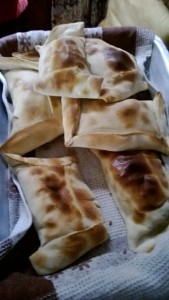
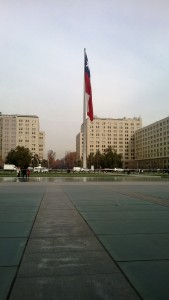
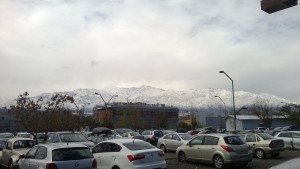
A common question asked by my friends when I told them I was going to be spending a year in South America was whether it was safe? Thankfully up to now, I have not been a victim of crime. However you always hear of stories of non-violent pickpocketing of bags and phones from public places such as the football stadium, tourist areas, pedestrian shopping areas, food courts, transport areas like the metro and bus terminals and areas around ATMs. The main message is that although petty crime does happen, violent crime is very uncommon. Road safety is outstanding compared to neighbouring countries and comparable to the standards of the USA. Carjackings and burglaries of apartments even those who have a concierge (pretty much every apartment in Santiago) are extremely rare. Obviously, nowhere is completely safe but I think Chile does not deserve to be seen as a place with a prevalence of crime at the levels of other South American countries. Talk to any Chilean on the matter how ever and they will tell you that Chile is very unsafe. Their perception of crime in their country, I feel, can be more than it actually is. This is tied with the dominant feeling of no, or lack of, trust. This is perfectly demonstrated when you go shopping. To buy anything you first have to pick the product you want, pay for it, take the receipt, and give it to the shop assistant who will then retrieve your product. All a long process but highlights the high levels of untrustworthiness present in the country. Most Chileans actively warn foreigners that Chileans steal and should be very careful, take care with your belongings like you normally would but Chile is not as dangerous as sometimes described by its’ population.
Here’s an interesting article that I found that goes into more detail of how Chileans perceive their country and the actual situation. http://santiagotimes.cl/despite-lowest-murder-rate-chileans-insecure-latin-america/

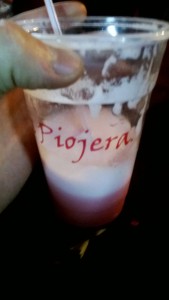
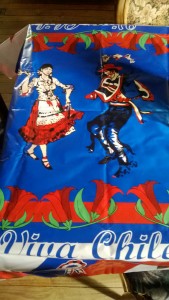
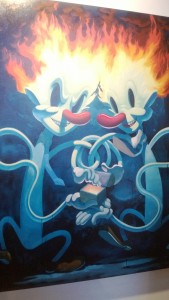
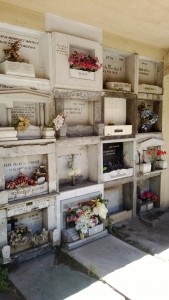
It’s thanks to the Carabineros, the police force, also known as pacos, that I feel pretty safe here in Chile. They have formidable nearly constant presence in metro stations, busy streets and plazas. They derive their name from the Italian’s force Carabinieri and their distinct green uniform worn by stocky stern faced, aviator-wearing men and woman receive respect from Santiago’s thieves. Metro buskers often ask passengers to help keep an eye out for them so that they can avoid a hefty fine. They are all armed (something that took me some time getting used to as police in the UK are unarmed) and sometimes ride horses or are accompanied by German shepherds. The Carabineros are very professional, well trained, reliable and thanks to low levels of corruption are considered to be the best in Latin America. Under no circumstances is it wise to bribe them!
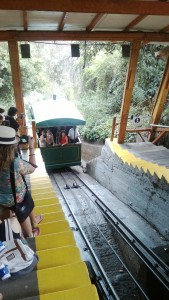
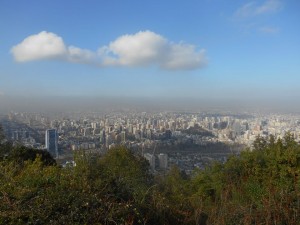
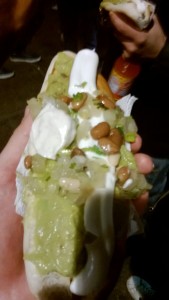
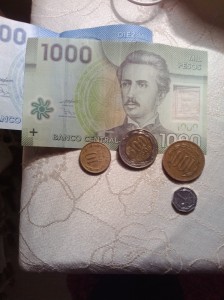
Around Chile there are many makeshift bars or restaurants. Particularly on the street Pio Nono in Bellavista, and in the period leading up to Chilean Independence Day on the 18th of September. These fiestas patrias (Independence Day celebrations) encourage many of these bars or fondas to be built which show off a little bit of Chilean tradition with completes, a Chilean hotdog, cueca, Chile’s traditional dance, and terremotos. Since the 2012 bicentenary celebrations, terremotos, literally translated as earthquake, has become the ‘national drink’ and it is delicious. The concoction is made up of three ingredients: a young white wine, pineapple ice cream and grenadine. Its’ name was given simply from what you feel is happening after you’ve drank a few cups – the room spinning and the ground shaking! Terremotos are fast becoming my favourite drink especially in the summer heat and even beer, which is hugely popular here; I am starting to like more. However, I think I will always be a cider man at heart which I miss.
The main reason for my year abroad is to of course improve my Spanish in order to reach a fluent level (or as close as possible!). So far I have realised a lot of it is to do with confidence. If you begin to doubt yourself and question the grammar then you start sounding nonsensical. The best thing I have realised is to just launch yourself into it and sort of hope for the best and then ask natives if what you said was right or if there was a way you could of said it better. A lot of communication cannot be directly translated as languages are much more complex with varying nuances that actually sometimes make it impossible to translate a word or phrase exactly how it is in the original language (Something I picked up from two classes of a translation module). However, I am pleased to say my Spanish has come leaps and bounds and now I like to play a game with Chileans asking them where I am from. I get all sorts from Spain, to Mexico, Brazil a few times! and Dominican Republic once which was a surprise. Not sure if this is down to my Spanish or my appearance or just Chilean inexperience with foreigners but I feel I definitely have improved.
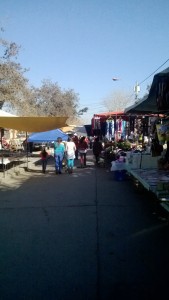
I finished my first semester of University at Pontificial Catholic University of Chile back in November. The University is great with interesting modules. I was given free pick and chose some political science modules to try something different. Introduction to International Relations and Defense and Strategy in the Modern World of a State were very interesting and different to the history and language modules I took back in Southampton. The university itself is not too different. It has slightly more students than Southampton with most of them on a huge campus called San Joaquin, situated about 15mins on the metro from Santiago centre. The campus takes about 10 minutes to walk across and has a sports hall and large playing fields at the back. There are plenty of grass areas to sit and chill, places to eat and study rooms to work. San Joaquin is beautiful in the sun with flowers and trees surround the main path leading into the university. In the middle of the campus is a chapel with the Andes Mountains in the background with nice water features. Lecture halls and classrooms are similar size to Southampton and apart from the Spanish the two main differences are the class length (classes are a gruelling 1 hour 20 minutes and can start at 8.30am!) and how we are marked. There are no percentages in Chile except a marking scheme of 1 to 7 with the pass mark at 4. So you can achieve anything between 1 and 7 e.g. 2,2; 4,3; 6,7 etc. Roughly anything above a 6/6,2 is a first. With my only obligation to pass I was pretty relaxed and managed to get above 4 in all my modules. The also have a web platform like blackboard in Southampton. The best thing however was getting the opportunity to meet people from all over the globe: U.S.A., Brazil, Sweden, Mexico, Colombia, Germany, Australia and the list goes on. Unfortunately, most were only here for a semester but now I have friends across the globe I can go visit! I am slightly sad not to be studying at the university next semester but I decided to look for an internship. I got lucky and will start a six-month internship at the human rights organization Amnesty International Chile in March. I am very excited to learn new things and work at a global organization. I will be working on two teams – Campaigns and Activism and Education of Human Rights.
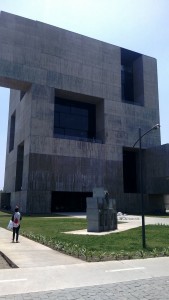
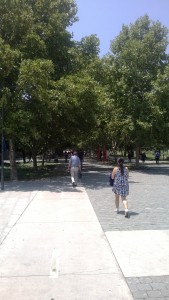
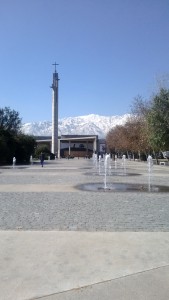
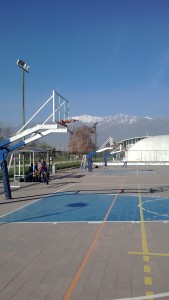
That’s all from me, my next post will probably be about my internship and what else I learn in Chile, but if you want to know more (this is just the tip of the iceberg!), check out my blog where I go into much more detail!
¡Chau!
P.S. Apart from the glorious weather, the best thing about South America is that each country is individual and share little similarities with one another. I have been to Argentina and Peru and my trip to Machu Picchu last December was a dream come true and the best thing I have done!
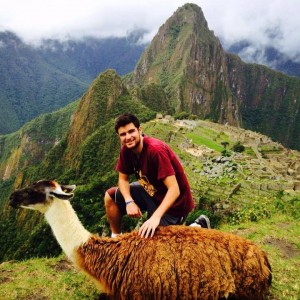
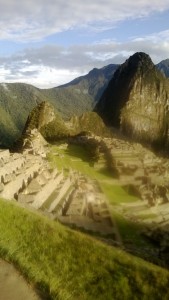


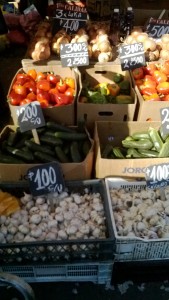
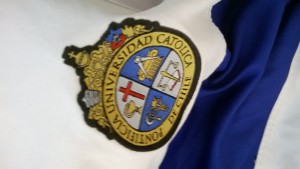
HI Gavin! I enjoyed your post about your experiences in Chile! I am originally from the US but have spent many years now teaching English in Chile. A group of about 8 of my undergraduate students from Chile are currently spending a semester abroad in Southampton. I don’t know if you live there now, but considering you are familiar with both Chile and Southampton, I thought maybe I could put you in touch with some of them! They are mostly enjoying their time in Southampton but are really missing their Chilean food. Do you know of any places they can get some Chilean foods in the area? Any Chilean community associations or anything like that? If you have any tips for them, let me know in a comment here or send me an email: brandeestricklan@hotmail.com